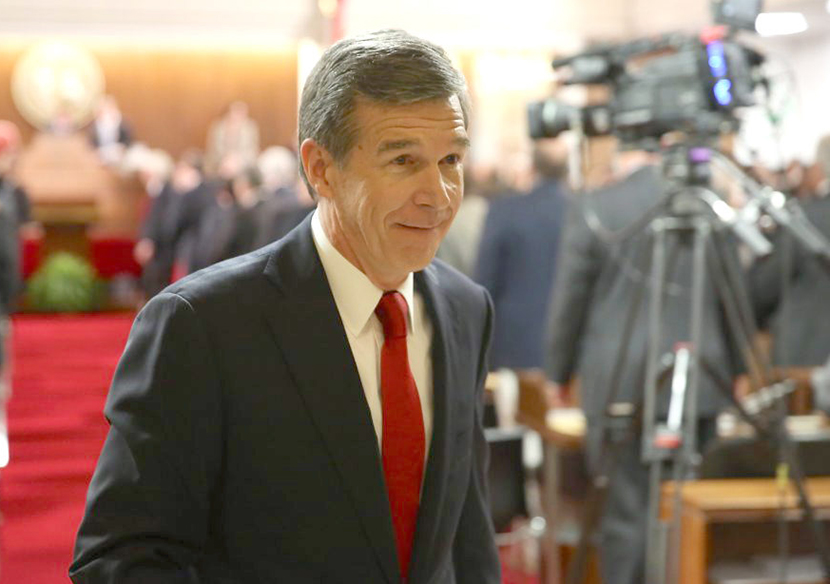Publisher's note: The author of this post is Lindsay Marchello, who is an associate editor for the Carolina Journal, John Hood Publisher.
Facing Republican supermajorities, Democratic governor chose confrontation over collaboration
When Roy Cooper was elected governor of North Carolina, he faced an uphill battle to fulfill any of his campaign promises.
Republicans held a supermajority in the General Assembly, essentially taking away Cooper's veto power - his main form of leverage. Then in a special session before Cooper was inaugurated, legislators passed several measures further limiting Cooper's power. They removed the governor's ability to appoint a majority to the State Board of Elections. They made future elections of state Supreme Court justices and Court of Appeals judges partisan. And they required Senate approval of any Cabinet appointees.
Chris Cooper, the head of the political science department at Western Carolina University, explained just how limited the governor's options are in advancing his policies.
"He holds what is traditionally a not very powerful position as governor of North Carolina in comparison with other states. He just doesn't have a lot of power to yield," Chris Cooper said.
"You add to that that he's facing a supermajority and you add to that [the] supermajority reduced his power even further. To say it's a big mountain to climb would be an understatement."
While Cooper was able to get House Bill 2 - or the "bathroom bill" - repealed, the LGBT advocacy group EqualityNC considered the repeal measure a
sellout. Five of Cooper's eight vetoes have been overridden, most prominently the one rejecting the General Assembly's two-year budget. Campaign promises like restoring film tax credit subsidies and the child care tax credit have stalled, while attempts to expand Medicaid resulted in a lawsuit that remains unsettled.

Gov. Roy Cooper outside the House chamber immediately after giving his State of the State Address March 13. (CJ photo by Don Carrington)
"There are two main avenues by which the governor could gain influence," John Dinan, a political science professor at Wake Forest University, explained.
"Either help Democrats break the Republicans' three-fifths majority in the next legislative elections, or, when possible, challenge legislation and legislative actions in court."
Breaking the Republican supermajority would be the most significant means of regaining power, Dinan contends. Lawmakers will have to draw new legislative maps for the 2018 election - and possibly for a special legislative election this year - a move that could end up helping Democrats.
"Any chance to redraw the state legislative maps opens the possibility that Democrats could in the next election cut into Republicans' 35-15 advantage in the Senate and 74-46 advantage in the House," Dinan said.
The governor has used courts to fight the General Assembly, arguing in lawsuits that legislators acted unconstitutionally during the special session with laws limiting his power. He most recently filed a lawsuit in May over a law that cut the number of Court of Appeals judges from 15 to 12.
Dinan pointed out that going through the courts may help Cooper, since Democrats control a 4-3 majority on the state Supreme Court and Democratic-appointed judges hold more seats than Republican-appointed judges on the 4th U.S. Circuit Court of Appeals that covers North Carolina.
So far, the litigation strategy has yielded mixed results. Cooper has relented on confirmation of his Cabinet members and partisan judicial elections. The State Board of Elections dispute remains alive.
Raleigh attorney Gene Boyce, who has lived through a lengthy
legal battle with Cooper, argued that using the courts to settle policy differences does not help the people of North Carolina.
"My sense is that those matters are largely political," Boyce said.
"The other thing is, Cooper as attorney general and now as governor, spends taxpayer money to hire attorneys outside of those attorneys already on the government payroll."
Boyce called Cooper's tactic
"a political reaction to what he can and cannot do" and suggested that
"what he needs to do is do what he was elected to do - look after people."
The governor did not respond to requests to speak with CJ for this story.

